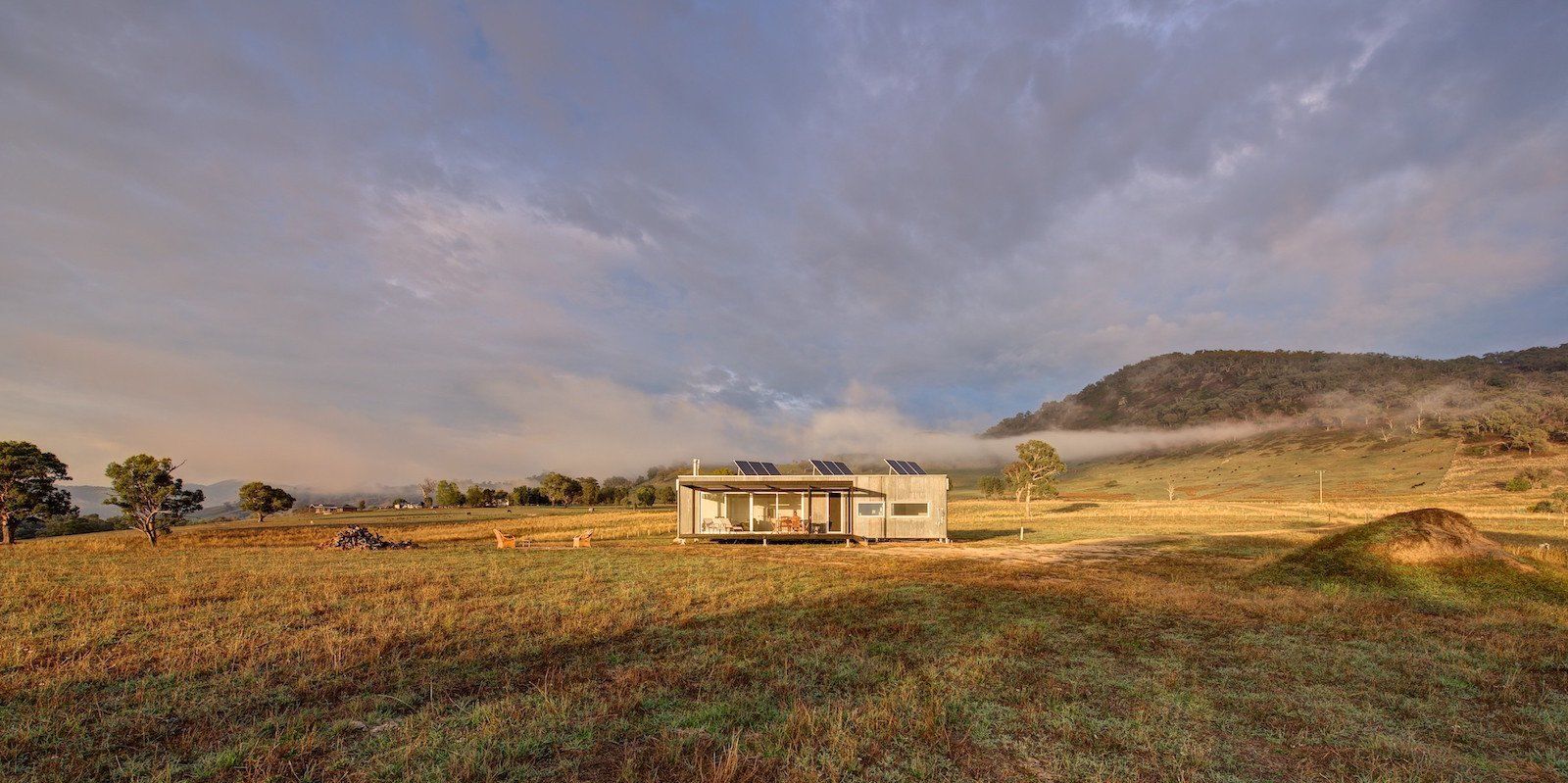Design/build firm Modscape built this single-module home in their Brooklyn factory and installed it on-site in just one day. Commissioned by a client who splits his time between Australia and France, the 700-square-foot cabin was designed to withstand long periods of vacancy without drawing unwanted attention. 
"[The client] didn’t want to worry about people breaking into it when he wasn’t there," said Jan Gyrn, managing director at Modscape. "So we took from the surrounding architecture to create a dwelling that to people driving by on the road would look like a shed. He wanted it to be quite subdued…almost like it didn’t exist." To disguise the home, Jan and his team clad the boxy cabin in recycled, corrugated iron sourced from salvage yards. 
The entire building, from the cladding to the fixtures, was finished in Modscape’s factory and cost about $146,000. Six-panel construction was used for the shell, bolstered with the heavy insulation, to achieve an R-value of 5.7. All the windows are low-E and double-glazed.
The completed cabin was shipped five hours from the factory to the property, and the client moved in one week after installation. 
"We spent a long time figuring out the siting," explains Jan, adding that the client purchased the property because of its proximity to Australia’s longest river, the Murray River.
The home, set on the river’s southern banks, is oriented on a north-south axis to optimize views while minimizing summer heat gain and heat loss in winter. 
"The interior is quite a contrast to the outside," said Jan, describing the modern finish with white walls, clean lines, and contemporary fittings. The minimalist light-filled interior features an open-plan kitchen, living, and dining area that opens out to a spacious outdoor deck. The master bedroom is tucked into the southern end of the unit.
A 5kW solar system is installed on the roof, enough to power the LED lights and other appliances. A Nectre wood-burning fireplace offers heating in winter, while a small air-conditioning unit can be used in summer. A rainwater tank and septic tank further minimize the home's environmental impact.

Tropical Boho Homes With Beautiful Vignettes & Vistas
Two tropical boho home designs, featuring swimming pools, cozy lighting schemes, interior archways, natural accents, and beautiful decor vignettes.


![A Tranquil Jungle House That Incorporates Japanese Ethos [Video]](https://asean2.ainewslabs.com/images/22/08/b-2ennetkmmnn_t.jpg)









